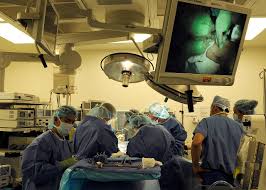What Comes After a Masectomy?

What comes after a Masectomy?
“What comes after a masectomy” was
originally published as Life After Mastectomy
BY Nicola Conville, Freelance Journalist
Nicola Conville is a freelance journalist
She writes about health and lifestyle.
Her blog can be found at .
Here is what she has to say in her site’s About Us section.
Hi! I’m Nicola, thank you for visiting. I am a health and lifestyle journalist with more than 12 years experience. I have written for a wide range of publications including Better Homes & Gardens, body+soul, Cosmopolitan, Escape, Family Circle, Gardening Australia, Kidspot, Men’s Fitness and Weight Watchers. I have written about many different topics but my main areas of interest are health and wellbeing, human interest stories, travel, parenting and lifestyle. The services I provide include feature writing, subediting (remote and in-house) and proofreading.
Contact me on 0487 945 050 or email nicola.conville[at]gmail.com
Masectomy not the end
“… I felt that my b___s were my best asset and knowing I’d lose them was very hard to come to terms with”.
It’s still possible to feel great and have a positive body image after a mastectomy, as these women explain.
Mastectomy is the medical term for the surgical removal of one or both breasts. The procedure usually involves removing the whole breast, and often the nipple and lymph nodes. But while losing such a key part of womanhood is very challenging, it doesn’t have to mean the end of life as you know it.
The changes after breast cancer
Breast cancer survivors can have a range of responses after having a mastectomy, explains Professor Jane Ussher from the University of Western Sydney, who has done extensive research into sexuality and intimacy after cancer treatment.
“Some women accept the changes well and focus on their health,” she explains. “Having faced mortality, they put life in perspective. However, some women feel ugly or deformed, and worry they won’t be attractive any more.”
While losing a breast – or both – can be devastating, it’s not the only factor impacting on a woman’s femininity and sexuality.
Side effects of masectomy
“In terms of our research, what we’ve found is that it isn’t just the mastectomy that has an effect on women,” says Professor Ussher. “There are a number of changes that happen [after breast cancer treatment] in terms of the sexual body including vaginal dryness, hot flushes and a change in libido.” Vaginal moisturizers and lubricants can be helpful, as can hormone treatments and therapy. Communicating with your partner and taking things slowly is also very important.
So how can women equip themselves to deal with the changes and make the most of life post-cancer? “Breast cancer nurses provide incredibly good counseling in terms of changes in the body and sexuality,” explains Professor Ussher. “Many hospitals also have psychologists who provide good support, and cancer support groups can also be very effective. Women need to grieve the loss of their breast and find new ways of feeling sexual; it’s about redefining yourself as a woman.”
The support of a partner is also vital, says Professor Ussher, because when a woman feels accepted she can be much more positive about the changes. It’s also important for her to feel she can grieve. “Women can be very sad and depressed about the changes, and partners need to accept that,” she explains.
